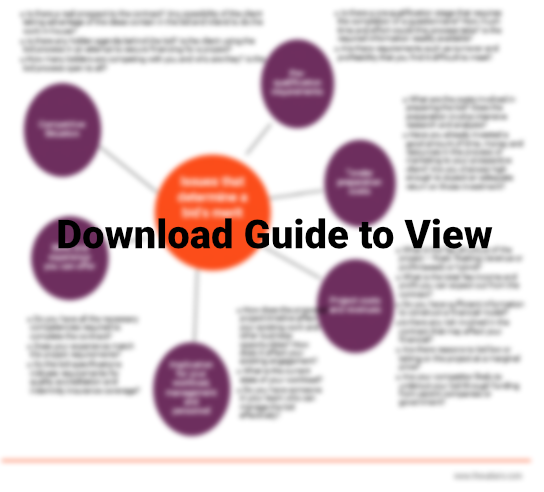Let's Talk
Request a private consultation. Discover how you can Make Your Move™.
A tender is a competitive sport. If you don’t proactively enhance your business’ capabilities, your ability to compete in the market will atrophy just like any athlete.
The giveaway guide that boosts your chances of submitting a winning tender document.
DownloadA bid process is undertaken to award procurement or project contracts to the most suitable contractor. Contractors are selected based on evaluation criteria set by the client. This process is commonly adopted by government agencies to procure goods and services. Apart from procurement, government agencies may also facilitate capital project contracts and even land sale by way of a tender.
For example, the Singapore Government typically calls for open tender to ensure transparency and fair competition. The purpose is bring best value to the public through open competition.
These contracts are typically awarded to one supplier or vendor for the required goods and services. However, there are occasions where the contracts may be awarded to more than one party. This will depend on the type, size and complexity of the services to be rendered.
A bid process typically begins with a bid announcement by a government agency and ends with a contract award.
exhibit 1: bid process

Bid
A bid is useful for predictable projects when the client has a clear understanding of the requirements and processes necessary to achieve the end goal.
For example, a client looking for a partner to develop an attraction. They will provide detailed written specifications of the project which include information such as site information, scope of work, other terms and conditions of the project.
Interested parties bid for these projects by specifying the bid price, estimated costs to complete the development, etc. The client evaluates submitted bids based on the evaluation criteria. The applicant with the highest score is shortlisted for further negotiation prior to awarding of the contract.
In a bid, all necessary information is transparent to all stakeholders. Since the specifications of the contract are outlined in the bid documents, little variation is expected across submissions. This in turn accelerates the selection and decision-making process for the client. Another advantage of a bid is that it minimises favouritism and corruption since applicants will be scored based on objective evaluation criteria.
The drawback of a bid is that there is a possibility that the selected applicant may underestimate a project’s bid price in an attempt to win the contract.
Proposal
A proposal, on the other hand, is often solicited as a competitive negotiation method. This is usually the case when cost or price may not be the only the deciding factor. The client may weight multiple factors, e.g. on quality and experience.
A proposal showcases what your company can offer a prospective client. Information enclosed would typically include clients’ testimonials from previous engagements and sample of the past work done. The purpose is to bridge the trust gap between the company and the prospective client.
When a company submits a proposal, it is often done so in competition with other companies. As such, it is important to construct a proposal that showcases value and provides a flavour of what how it feels like to work with you.
Value to the client can come in various forms. A company can provide value by helping the client to increase efficiency by:
Prospective clients will often provide you with engagement objectives and may also be open to value-adding perspectives.
The four commonly adopted types of bidding are:
exhibit 2: tender types

Open tender
This is an openly publicised tender. It allows any individual or company to submit a tender to supply the goods and/ or services required.
An open tender is intended to provide the highest degree of competition among service providers and suppliers. It creates opportunities for new and emerging service providers and suppliers.
Not all who respond are suitable for the contract. As such, more time will be required to filter and evaluate the submissions based on pre-selection criteria.
Selective tender
A selective tender is only open to invited applicants. These applicants are typically shortlisted based on their capabilities via a pre-qualification exercise.
Invited applicants are those who are proven to be suitable based on their past track records and credentials. They are likely to be capable of handling a contract of that size, nature and complexity required.
Selective tender gives the company greater confidence that their requirements and specifications will be met. It may be particularly appropriate for complex contracts, or contracts where there are only a handful of suitable firms in the market.
While this procedure may also reduce the amount of time spent to shortlist the suitable party, it excludes other firms who are trying to establish themselves or penetrate the new market.
Negotiated tender
Negotiated tenders are often adopted by companies in the engineering and construction industries. This tender option can be applied widely from procurement to dispute resolutions.
Negotiating with a single supplier may be appropriate for highly specialised contracts, renewal or extending the contract period and even expanding the existing contract’s scope of work.
A contractor that has familiarised him/herself with the tenderer is likely to enjoy better communication and information flow within the tenderer’s organisation. Negotiated tenders also allow the tenderer to negotiate a lower contract price.
Single-stage and two-stage tender
Single-stage tendering is used when all the information necessary to calculate a realistic price is available when tendering commences. An invitation to tender is issued to prospective suppliers, tenders are prepared and returned, a preferred tenderer is selected and following negotiation they may be appointed.
Two-stage tendering is typically used to allow early appointment of a supplier, prior to the completion of all the information required to enable them to offer a fixed price. In the first stage, a limited appointment is agreed to allow work to begin and in the second stage a fixed price is negotiated for the contract.
Other types of tender include serial tendering, framework tendering and public procurement. Serial tendering involves the preparation of tenders based on a typical or notional bill of quantities or schedule of works. Framework tendering allow the client to invite tenders from suppliers of goods and services to be carried out over a period on a call-off basis as and when required. Lastly, public procurement is for public projects held by the government agency.
For business growth and profitability reasons, it is typically assumed that most individuals, contractors, suppliers or vendors do not usually submit a competitive tender for every project that is presented on their table.
While it is uncommon for invited individuals or companies to decline the invitation, there must be a policy in place for the individuals or companies to decide whether to submit a bona fide bid. Entities with available resources will dictate that they must be selective, choosing which work they will tender for from a continually changing array of potential projects. Upon receipt of the bid enquiry, entity must decide whether to accept the invitation to submit a bid for the project or to decline it. The entity will have to prepare and submit a bid price for the requested work should he or she accept the invitation. Submitted bid price will serve as an offer to the client, once accepted by the client, which constitutes the basis of a binding contract.
The decision whether to submit a bona fide bid is paramount to any entities. It is empirically evidenced that considerable amount of work and job creations in various industries such as engineering and construction is driven by competitive tenders. Therefore, most industry leaders secured the most of its income through successful tenders. It is on this premise that any invited entity might lean towards accepting an invite unless there are good reasons for not doing so.
The decision to submit a bid may require the entity to commit to certain expenditure in the preparation of an estimate. These costs will be considered as sunk costs and not recoverable should the bid outcome be unsuccessful. Apart from costs, the decision will also depend on an array of factors that include financial situation, operational capacity and technical resources.
Therefore, it is important to examine the bid requirements and specifications carefully and formulate a system before responding to the bid. Here are some of the issues to consider that aimed at determining the merit of a bid:
exhibit 3: issues that determine a bid’s merit

Bid management plays an important role in improving your success rates when bidding for a contract. Diving in head first without a bid management strategy is a sure-fire way to see poor results.
A bidding process can be intricate if it is not managed well especially when the process involves stakeholders from various departments.
Bid management is crucial because bid writing can be a time-consuming process with various stakeholders involved. It is important that this is managed correctly in order to create a winning bid for your organisation.
Bid management can be frustrating for businesses who do not have an in-house bid manager – individual who does this as well as their day-to-day job can find the process difficult to juggle. It can be stressful to liaise with relevant team members who already have heavy workloads on top of the tight deadline to submit the bid.
One way to aid this process is to partner with a bid management team who will work closely with you throughout the process to ensure you stand out from your competitors.
A bid manager is typically responsible for the following:
Bidding can be time consuming especially when you do not have a dedicated in-house team that specialises in this field. Investing company’s resources into multiple bid submissions without seeing any return can be frustrating.
Our team is available to work with you to review and improve your recent bid submission. We can also help you to recreate your company policies, procedures and case studies, ensuring your brand message to stakeholders is positioned correctly throughout.
We look forward to helping you take the way you do business to the next level of partnership.
There is always one winner in a high stakes bid or tender. Make that you.
Request a meeting with VALLARIS.
